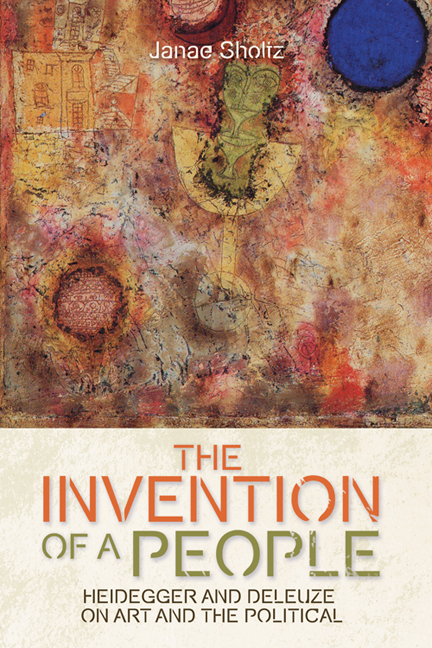Introduction: The People Are Missing
Published online by Cambridge University Press: 05 August 2016
Summary
Inspirations
Thinking about the conception of this project, I am drawn back to a very particular point in my graduate studies at the New School for Social Research, to a moment which has remained with me as the years have progressed and my philosophical journey has crystallised. That moment was during a lecture given by my professor, Claudia Baracchi, whom I had come to admire for her intellectual elegance, insight, and inspiration concerning Plato's Ion. Socrates is questioning Ion, the rhapsode, about the nature of his skill in interpreting poetry and, by extension, the source of the poet's gift – whether it be wisdom or inspiration. Socrates then presents an image of the nature of inspiration:
It's a divine power that moves you, as a ‘Magnetic’ stone moves iron rings. (That's what Euripides called it; most people call it ‘Heraclian’.) This stone not only pulls those rings, if they're iron, it also puts power in the rings, so that they in turn can do just what the stone does – pull other rings – so that there's sometimes a very long chain of iron pieces and rings hanging from one another. And the power in all of them depends on this stone. In the same way, the Muse makes some people inspired herself, and then through those who are inspired a chain of other enthusiasts is suspended.
Inspiration extends from the divine through the poet to the listener herself, a vibratory chain that reaches to the very core of one's being. Thinking about certain melodies that had haunted me, or words that had moved me, this image seemed to ring true, as an image that encompassed more than just the poetic. I began to think of this as an image of my experience of philosophy. Of course, this dialogue is meant to separate the task of the poet and the philosopher. The poet's poeticising is no art, in the sense of technēas knowledge about the nature of that which is spoken, but an affective connection, a channelling of elusive and vertiginous elements and forces.
- Type
- Chapter
- Information
- The Invention of a PeopleHeidegger and Deleuze on Art and the Political, pp. 1 - 22Publisher: Edinburgh University PressPrint publication year: 2015

